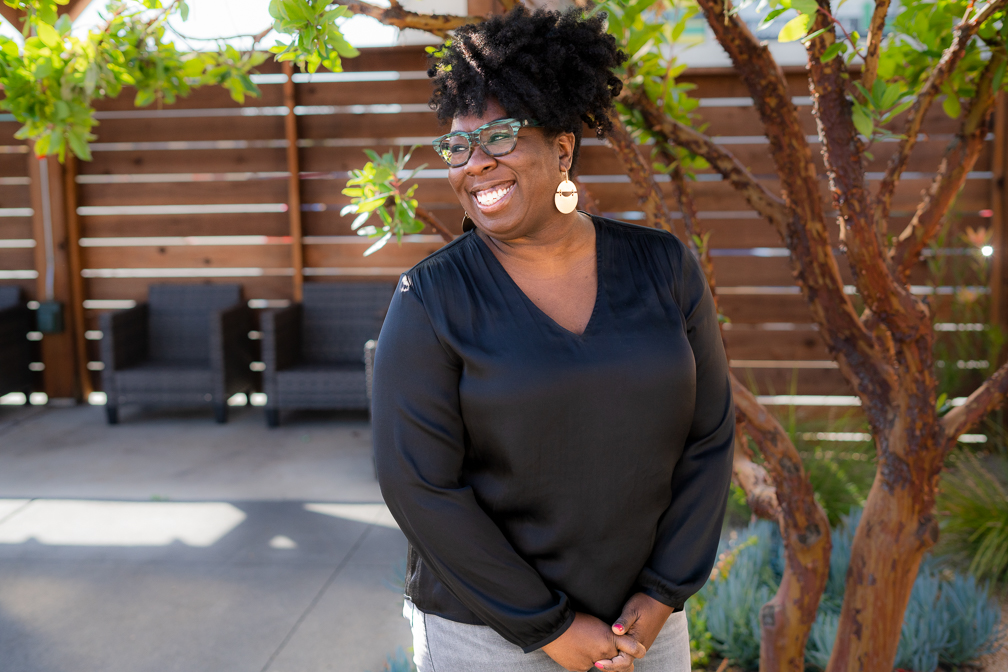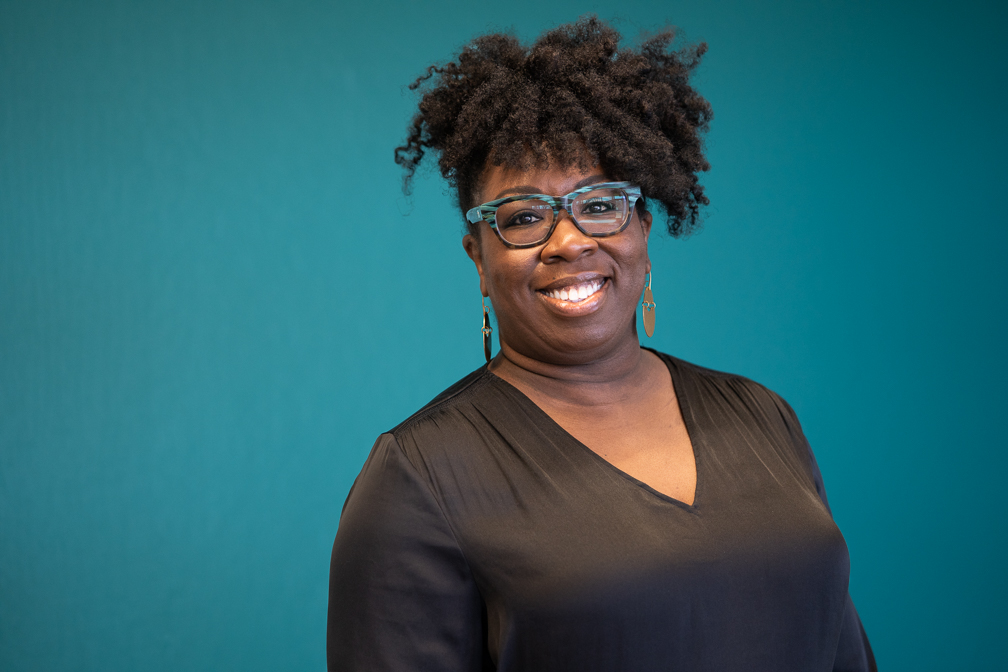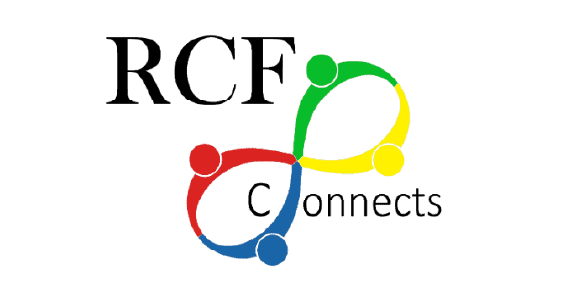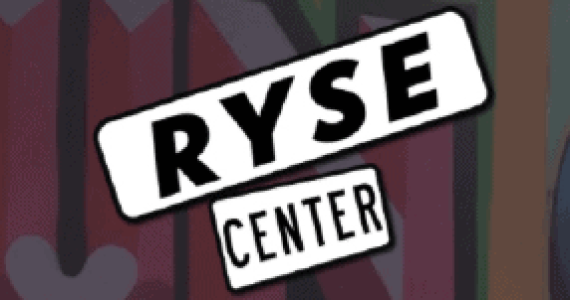CEF: How did you get here and begin doing the work that you’re doing today?
Stephanie Medley: I used to work at Bay Area Legal Aid, and that kind of propelled me into looking at what was happening in the criminal legal system in Contra Costa County. I started doing reentry work. That led me into looking at what was happening to young people that are in the criminal legal space in the county.
My supervisor at the time said, “Hey, you know that there’s this place called RYSE and they’re looking to start a youth justice department.” It was kind of right up the alley of where I wanted to go and what I wanted to do. It was an opportunity to start this brand new program and really focus on how we can create alternatives to incarceration for young people. That’s what led me to RYSE.
I’m from Richmond, and so what’s happening in this city and in this county in general is really important to me because I’ve had loved ones that are impacted by the criminal le- legal system and impacted by what’s happening in the education system. For me to be able to do work where I’m from is really important.
What does “youth justice” mean for young people? And what are some ways that youth justice is related to education for young people?
I started off as the Director of Youth Justice. About three years in, I ended up taking on the education work. We have these two huge systems that are impacting youth and they’re connected in a lot of ways. The phrase school-to-prison pipeline was really coming into people’s minds. I was really thinking about, “How do we connect these two and show that you actually can’t separate them because they’re so entwined right now?”
I want young people to feel heard, and I want them to know that they have an adult ally that’s gonna take action for them.
Stephanie Medley, Honoree, JWCA 2023 Tweet
I started asking how we bridge these two things together. What are the tutoring services that young people need? What are the college supports that young people need? What are the supports that they need when they’re reentering into the community after being incarcerated? We really started to kind of unpack and unfold some of those specifics. And then we began figuring out how we include young people in this process to make sure that we’re giving them the supports that they need.
What was your reaction when you learned that Chamberlin Education Foundation wanted to recognize you with a 2023 Julie Wright Changemaker Award?
I was so surprised! I’d just gotten back to the office from vacation, and that was one of the first emails that I saw. And I was like, “Whoa. Well, this is a happy surprise to be coming back to.” So it was that surprise. And just feeling honored that folks were looking at my work. I thought that was really special.
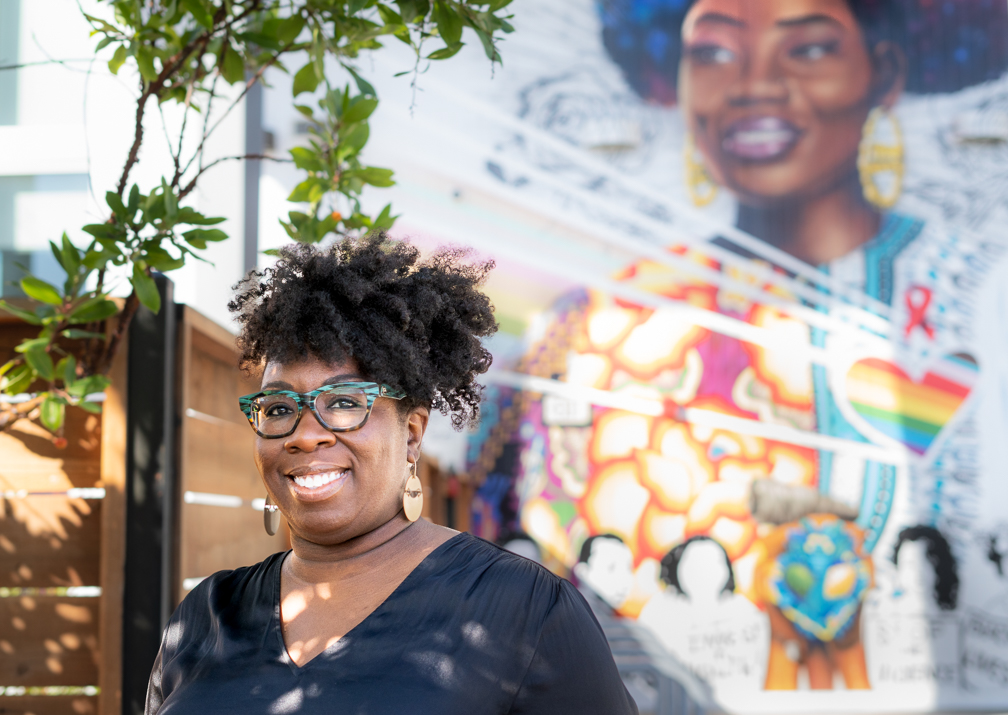
What do you remember about Julie Wright?
I actually met Julie right when I was taking over the education work at RYSE. She was a humongous support and a kind of navigator in introducing me to different folks that I didn’t know in the education field and across the education landscape at that time. She was introducing me to people, folks in the community that were, you know, on the ground doing work with our young people that I hadn’t met before. I didn’t necessarily have that much education experience. So, being able to have that thought partner in that way that was hugely important for me.
RYSE’s vision is to create strong, healthy, and united communities, where equity is the norm. What does that take to get there?
The first thing that I think it takes is listening to young people. I think a lot of the time we kind of dismiss what young people are telling us because they’re young. I think as adults, for us to be allies to youth, we do have to really listen to what they say. We have to challenge them in different ways, and let them challenge us in different ways.
What I found is that sometimes I’m like, “Oh, I think we need to do this in the work,” or, “I think we need to do that.” But, sometimes once we actually talk to young people about it, they’re like, “Eh, you know, actually I think we need something different.” Being open and available to make those pivots in collaboration and partnership with young people is very important.
The first thing that I think it takes is listening to young people. We have to challenge them in different ways, and let them challenge us in different ways.
Stephanie Medley, Honoree, JWCA 2023 Tweet
Another thing that I think is important is that a lot of times we put the onus on young people and their families around behavior change. Sometimes there may need to be individual behavior changes. However, we also have to look at the systems that are in place and how the system’s behavior needs to change. I think that’s a very important question: Do they need to be changed? Or does [the system] just need to be completely demolished and (laughs) transformed? And so, in order to get to that equity, we need to take a deeper look and critique those things, and figure out the ways that we need to go to get to that equity.
One RYSE value statement declares that “risk-taking is essential to liberation.” How does courage and risk-taking show up in your work, and in your interactions with young people?
That’s a great question. I think as adults we lose our imagination. Um, we forget about being risky and taking those leaps and bounds. I think young people are completely the opposite. They’re like, “I’m gonna go do this thing.” I think it’s important for us to be childlike when we’re in this work. That helps us to stay innovative and always ready to be creative in the work that we’re doing.
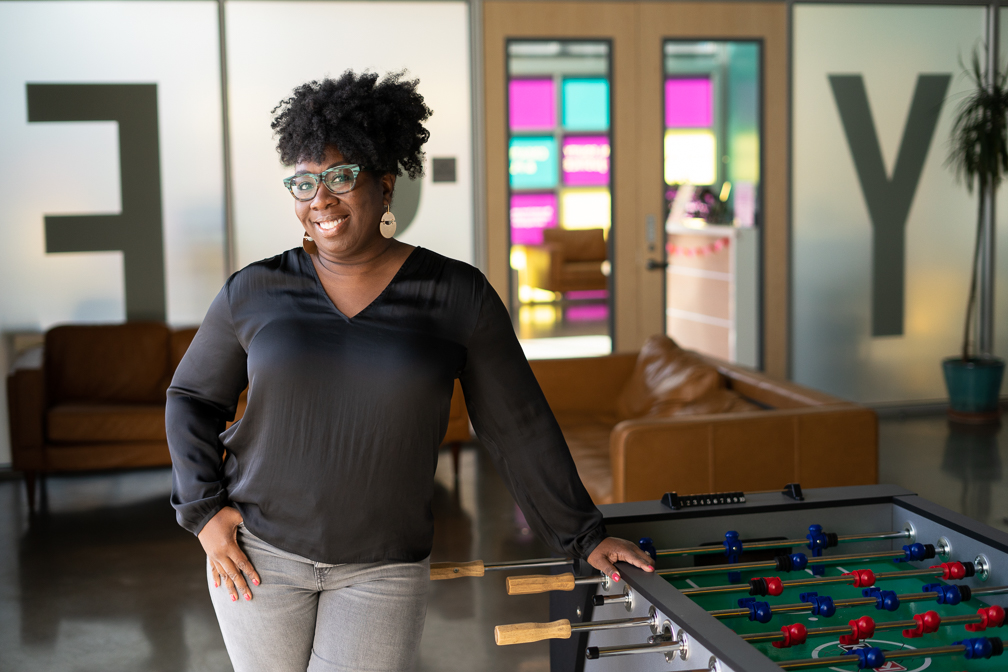
We’re kind of taught that things need to go a certain way and it’s kinda like this linear thing. When we’re thinking about this type of work, you can’t necessarily go on a linear path. Sometimes you’re gonna have some curves. Sometimes you’re gonna have to go down some hills. And so, I think being open to that, being innovative in how we think about, “How do we get to those certain milestones?” is important in the work. And taking those risks. Healthy risks are important. And those are the things that help us grow and thrive.
What are some things that you feel particularly proud of in your work or just as a professional in the community that folks may not know much about?
One of the things that’s huge for me is the relationships that you build with adults, with young people. Those are so important. I’m encouraged every day by what I see young people doing. And it, like, gives me a little ‘oomph’ to carry on and move forward.
One young person said, "The future of our city is in the hands of our youth." That's so true. Our job is to nurture them so that they can be the ones to make sure everything is thriving.
Stephanie Medley, Honoree, JWCA 2023 Tweet
Another of the things that was huge for me is starting the first Restorative Justice Diversion Program in Contra Costa County. It was to just start in West County, and we started right during the pandemic. And (laughs) you know, even though we were going through this crazy time, we had the opportunity to open it up for the whole county. So, being able to create this pathway for young people not to be incarcerated and to look at when a harm has been caused in a more holistic way was huge and super important in how we’re supporting our young people, how we support persons that have been harmed, how we’re supporting our community overall.
Is it off to a good start?
Yeah, it’s off to a good start. We started in 2020, and we’re still going strong. There were some pivots that we had to do, but we started doing things virtually since we couldn’t meet in person. We’re full-up in meeting young people, meeting people that have been harmed in person, meeting other community members in person for the program. We’re looking at, how do we create this and make this a more sustainable program? It’s definitely a needed piece in our community.
When you’re interacting with young people, what way do you want them to feel leaving that interaction?
I want young people to feel heard and I want them to know that they have an adult ally that’s gonna take action for them.
If your work continues another decade here in Richmond, and if it’s really successful, what will be true then that isn’t yet true today?
Hmm. I think one of the things that will be true, that you won’t even need my job (laughs). You would see more young people kinda stepping into their leadership. And it’ll be welcomed. It’ll be honored. We have this one quote that we’ve used (at RYSE) that a young person said, “The future of our city is in the hands of our youth.” And that’s so true. Our job is to nurture them so that they can be the ones to make sure everything is thriving. And so, in another decade, that’s what I hope (laughs) I would see. Because you see little glimmers of it now. But we should just see, like… It should be all over the place. It should be encompassing, um, our city, our county, everywhere.
Is there anything you just want people to know about you, or about RYSE, or about this work, that you really want to emphasize?
I think one of the things about this work is sometimes it’s not gonna be comfortable. And I think it’s important that we’re creating safe and brave spaces, but just knowing that a safe and brave space doesn’t necessarily mean that it’s not gonna be an uncomfortable space. And so, it’s really important for us to be able to sit in that discomfort and work through it together.
When you’re looking at guitars or you’re looking at piano strings, there’s some tension that happens there. And that tension has to be there in order for there to be some beautiful music that gets played. And so, in order for us to play beautiful music, you know, we have to have a little healthy tension.
